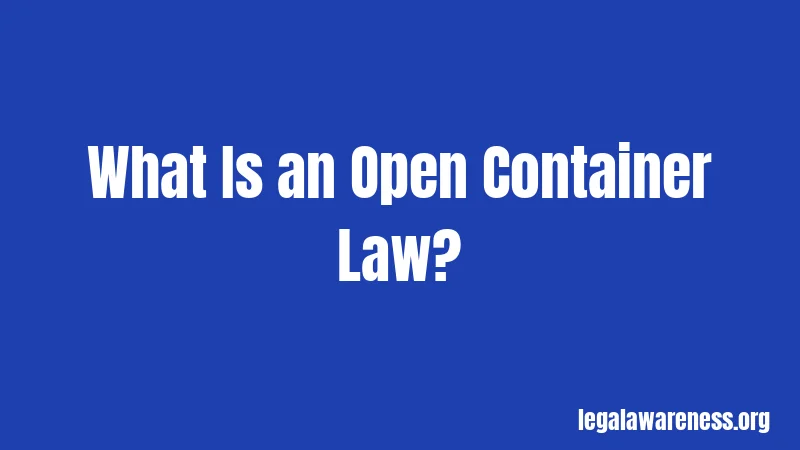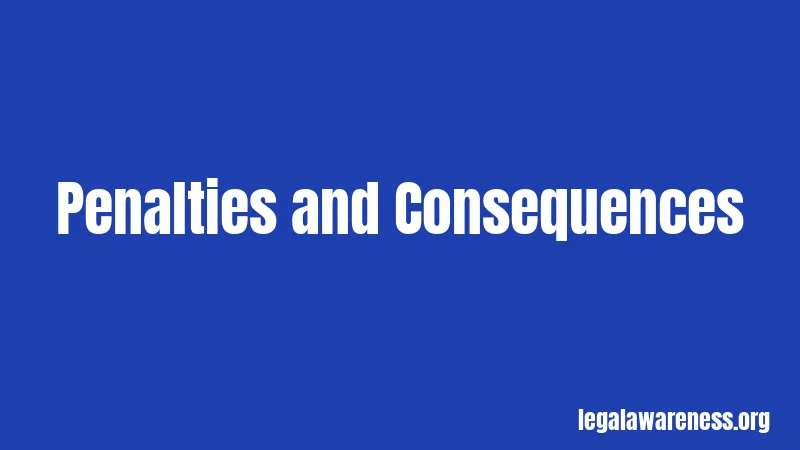Open Container Laws in Indiana (2026): The Rules on Drinking in Public
Most people have no idea how strict open container laws actually are. Seriously. You could get fined just for having an open beer in your car. In Indiana, these laws are pretty straightforward, but they come with real consequences. Let’s break down exactly what you need to know to stay out of trouble.
Stay with me here. This stuff matters more than you might think.
What Is an Open Container Law?

An open container is any alcohol you can drink from right now. Think of it like this: if the seal is broken and you could take a sip, it counts. This includes beer cans with the tab pulled, wine bottles uncorked, liquor bottles opened, or mixed drinks in cups.
These laws exist for safety reasons. Police want to prevent drunk driving and public intoxication. They also keep neighborhoods from turning into party zones. Pretty straightforward.
Indiana’s Open Container Rules
Where You Can’t Have Open Alcohol
You’re probably wondering where the restrictions actually apply. Here’s what you need to know.
In Indiana, you cannot have an open container of alcohol in your vehicle. This includes the driver’s seat, passenger seat, trunk, or anywhere else in the car. Even if you’re not driving. Even if you’re parked. Even if the car is off.
The rule is simple: open alcohol doesn’t belong in cars. Period.
You also can’t have open containers on public property. This means streets, parks, parking lots, sidewalks, and public beaches. If it’s not private property, you can’t drink from an open container there.
Not sure what counts as “open”? Let me break it down. A sealed bottle in your trunk? That’s fine. An empty bottle you drank from? Still counts as open if it’s in your car. A cup of beer at a tailgate in a parking lot? That’s violating the law.
What Counts as Your Vehicle
Here’s where it gets important. Indiana’s open container law applies to any vehicle. We’re talking cars, trucks, motorcycles, SUVs, vans, basically anything with wheels that you drive on public roads.
Even your trunk counts. You could literally be fined for having an open beer in your trunk while driving down the highway. Sound harsh? Yep, that’s the law.
The only exception is the trunk in limited situations. If you’re transporting alcohol you bought for home, keep it sealed and keep it in the trunk. That’s protected.
Penalties and Consequences

Okay, pause. Read this carefully. The fines aren’t jokes.
A first-time open container violation in Indiana is typically a misdemeanor. You could face a fine of up to $500. That’s real money hitting your wallet.
Think of it like a traffic ticket, but more serious. It goes on your record. Employers see it. Insurance companies see it. It sticks around.
If you get a second violation within a certain time frame, the penalties increase. You could be looking at higher fines, potentially up to $1,000. Some cases can even include jail time, though that’s less common for first offenses.
Here’s what gets worse: if you’re caught with an open container AND you’re driving, the police can use that as evidence of impaired driving. They don’t need a breathalyzer to suspect you of DUI. That open beer is basically saying “I’ve been drinking.”
Special Situations You Should Know About
Rideshares and Taxis
Wondering if the rules change when you’re not driving? Good question. If you’re a passenger in an Uber, Lyft, taxi, or any vehicle you’re not operating, the rules are different.
Passengers can legally have open containers in rideshare vehicles in Indiana. The driver is responsible for compliance, not the passengers. This is one of the few gray areas where having an open drink is technically allowed.
But here’s the thing: don’t be that person. Be respectful to your driver. Many drivers have policies against it anyway.
Private Property and Events
Private property has different rules. If you’re at someone’s home, their backyard, or a private event, open containers are generally allowed. The property owner is in control.
But parking lots can be tricky. Even if they’re technically private, some parking lots have their own rules. If a business owns the lot, they might prohibit open containers. Read the signs. Ask if you’re unsure.
Sealed Containers and Transportation
Here’s the important part: sealed alcohol is perfectly legal in Indiana. You can have unopened beer, wine, or liquor in your car. Just keep it sealed.
When you’re transporting alcohol from the store to your home, that’s completely fine. Keep it in the trunk if you can. It’s safer and keeps you in the clear legally.
How to Stay Out of Trouble

Here’s what you need to do. Write this down if you need to.
First, keep all alcohol sealed when you’re in your vehicle. All of it. Even that beer you’re “just about to finish.” Finish it before you get in the car, or wait until you’re home.
Second, if you’re going to a tailgate, beach party, or outdoor event, finish your drinks before you leave. Don’t carry open containers from place to place.
Third, designate a sober driver before you go out. This person shouldn’t have any alcohol. Period. Open container violations usually happen when people are going between bars or parties.
Fourth, know your property rights. If you’re at a friend’s house, you’re fine. Public spaces? No open containers, ever.
Frequently Asked Questions
Can I have an open container in my passenger’s car? No. As long as it’s an open container in any vehicle on public roads, it violates the law. It doesn’t matter if you’re the passenger.
What if the bottle cap is just loose? If it’s not properly sealed, it counts as open. Police don’t have to prove you drank from it. The open status is enough.
Are there any exceptions for special events? Some events have special permits that allow open containers, but this is rare and requires specific approval. Check with event organizers before assuming it’s okay.
Can I drink alcohol while sitting in a parked car? Technically, having an open container in a parked vehicle still violates the law in Indiana. It’s not recommended, even if you’re not driving.
What if the alcohol is in a closed bag? As long as the bottle itself is sealed, you’re fine. Once you open it, the container being in a bag doesn’t matter anymore.
Final Thoughts
Open container laws in Indiana are strict, but they make sense. These rules keep roads safer and communities better. The good news? They’re super easy to follow. Keep your alcohol sealed in the car. Drink before you drive or after you arrive. That’s basically it.
Now you know the basics. Stay informed, stay safe, and when in doubt, ask a police officer or look it up again. You’ve got this.
References
- Indiana Code Title 7.1, Article 5, Chapter 3 – Open Container Law Statute
- Indiana State Police – Official State Police Information
- Indiana BMV Motor Vehicle Laws – Driving and Vehicle Regulations
- FindLaw Indiana Alcohol Laws – Legal Reference Resource
- National Highway Traffic Safety Administration – Federal Drunk Driving Resources
